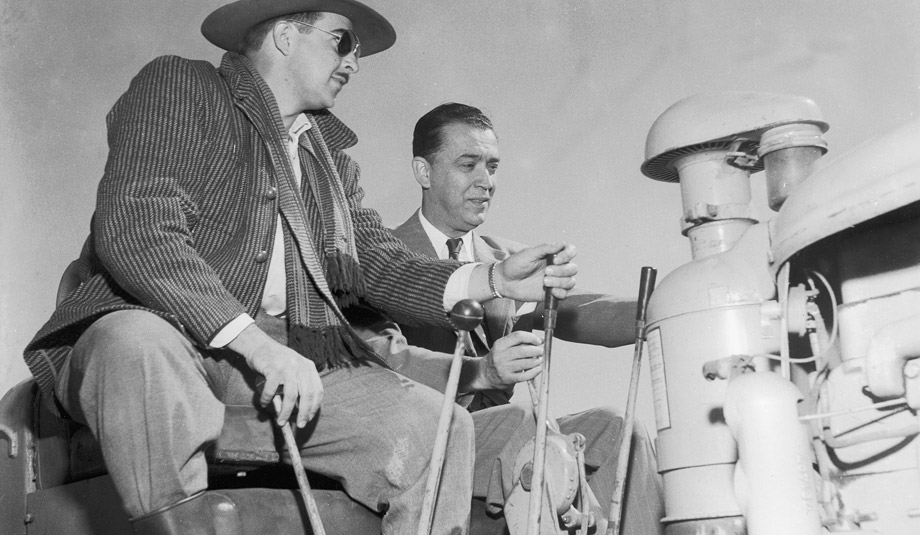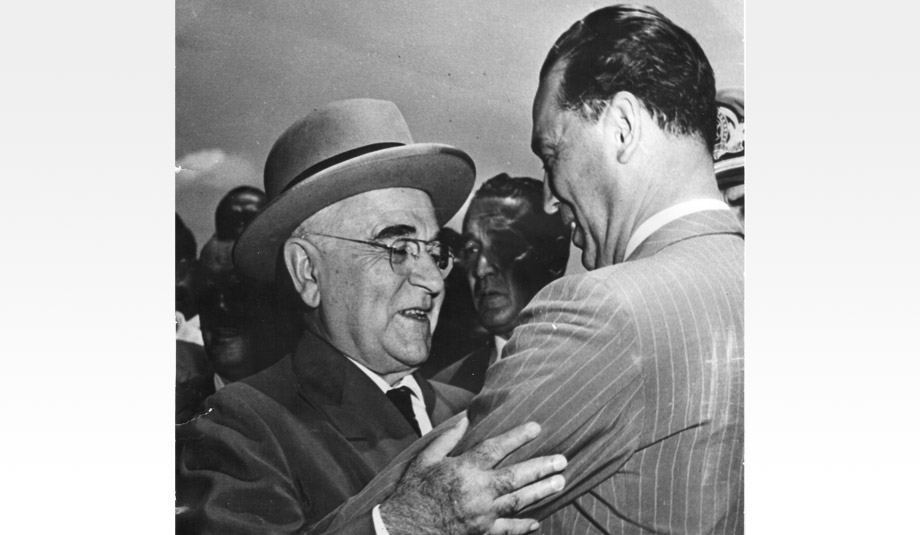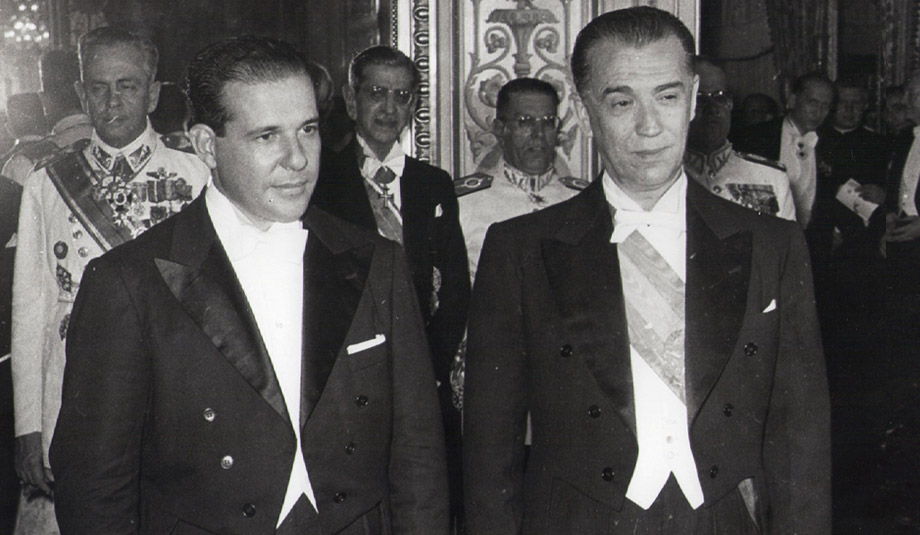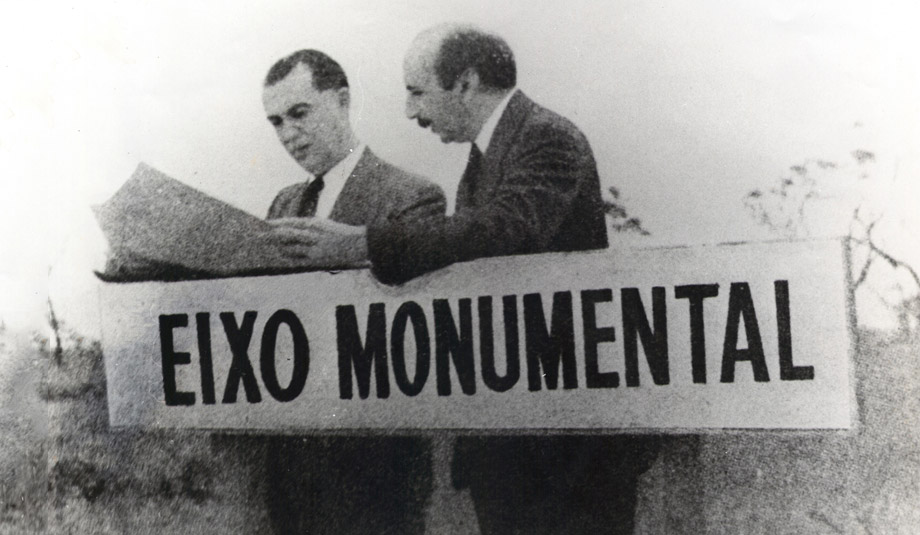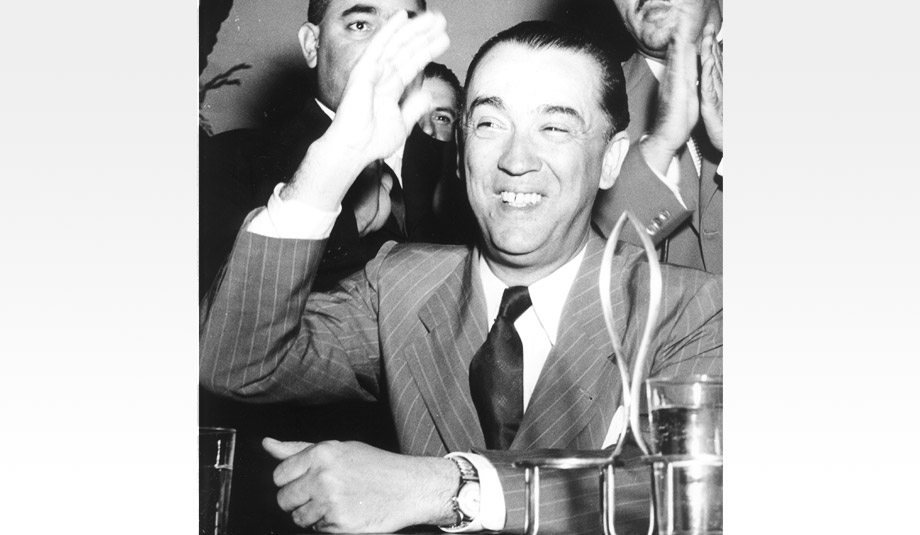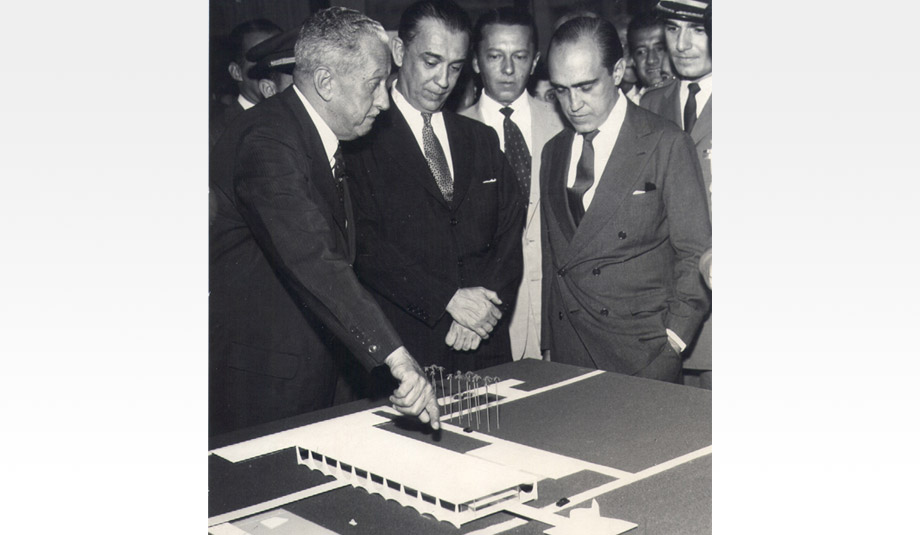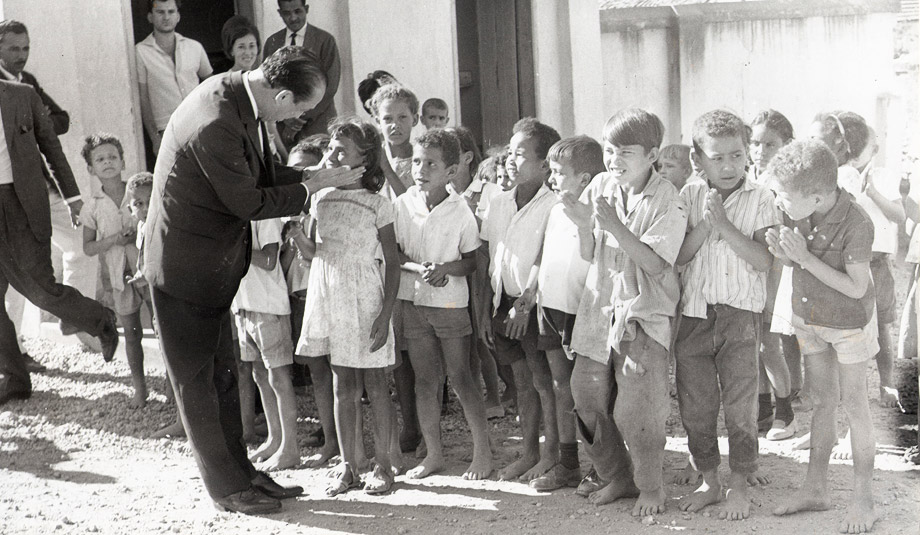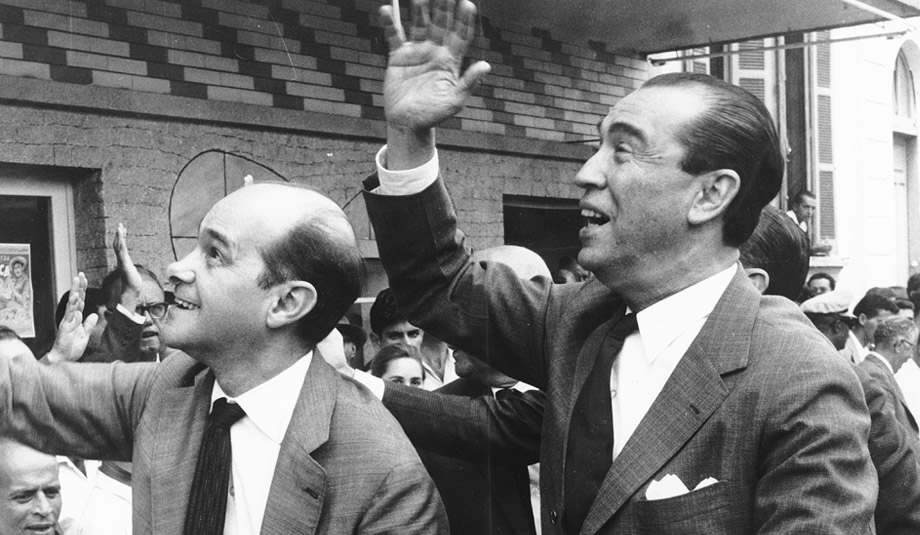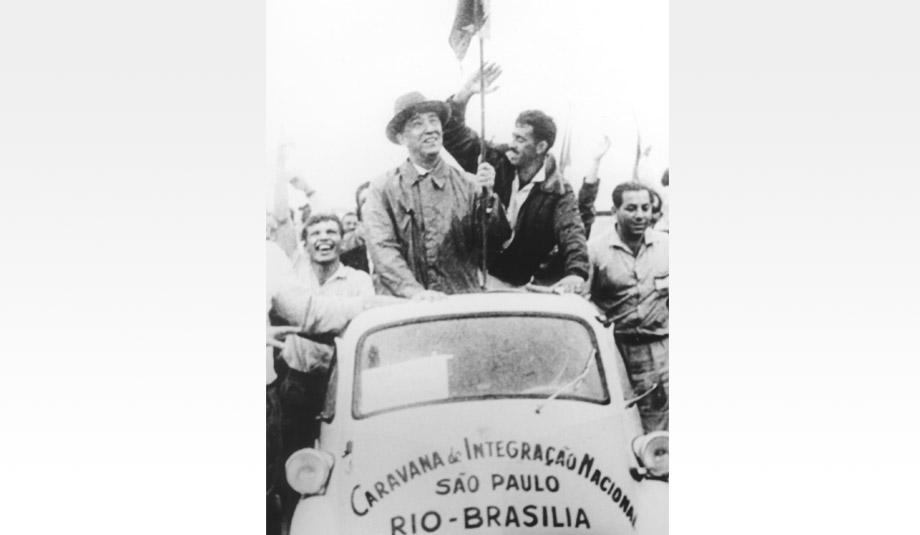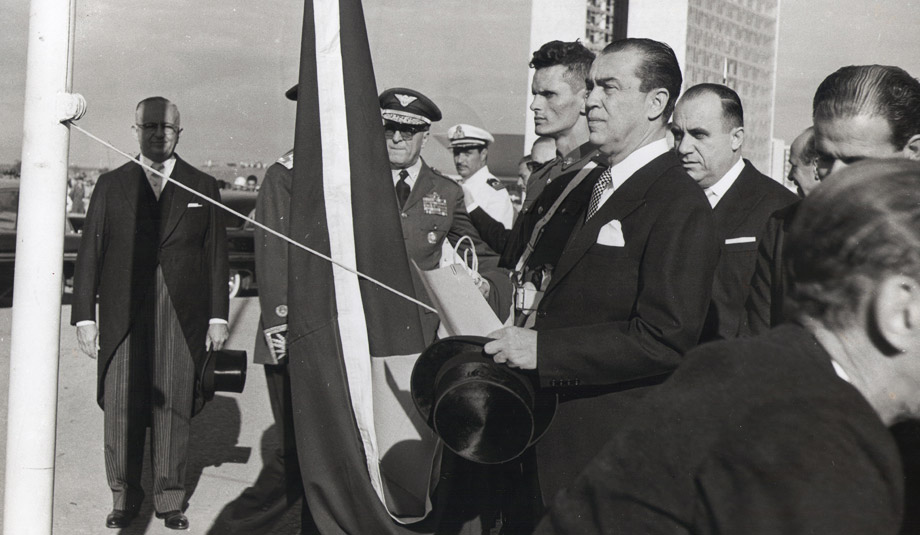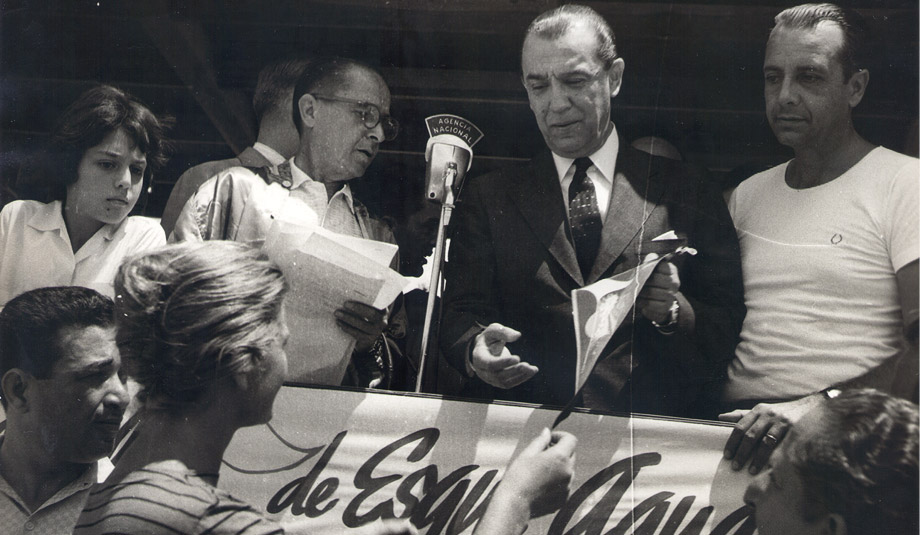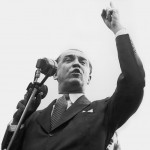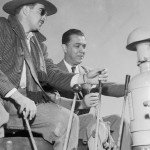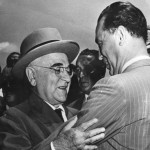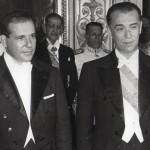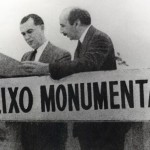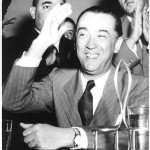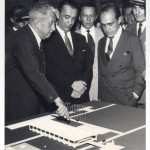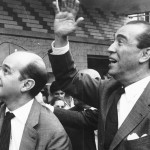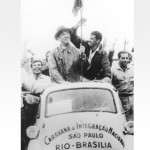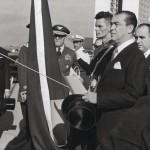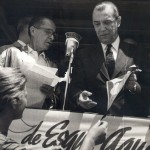The Politics

I claim for myself the inclusion of the word development in the vocabulary of the Brazilian politician because the political notion of this word had been lost before me. 
President Juscelino Kubitschek
I believe in Brasília and in what Brasília represents as a symbol, a demonstration of the people’s vitality. 
President Juscelino Kubitschek
Forgiveness is characteristic of greatness and of those who have a higher aim. 
President Juscelino Kubitschek
With a smile, an embrace (…) his patience to listen, his gift of conciliation (..) that is the mark that remains… 
Letter from Carlos Lacerda
The Politician
Juscelino Kubitscheck de Oliveira, a physician at the time, began his political career in 1933, when Benedito Valadares was appointed Interventor de Minas Gerais (federally appointed governor of Minas Gerais state). Benedito Valadares asked Juscelino to act as Secretário do Governo de Minas Gerais (chief-of-staff in the Minas Gerais state government).
During his mandate as mayor of Belo Horizonte, an office he held until 1945 when he was elected Deputado Federal (Member of the House of Representatives), Juscelino remodelled the city with avant-garde architecture, such as the Pampulha Complex which enjoys international acclaim.
By 1946, his terms as mayor and Deputado Constituinte (Member of the House of Representatives) were known for dynamism and the achievement of his campaign goals. This enabled JK to run for the governorship of Minas Gerais in 1950.
His governorship, built around the two main campaign terms “Energy and Transportation,” was marked with audaciousness and his untiring work to develop Minas Gerais State.
A skilled, attentive and benevolent politician toward everybody, governor Juscelino personified joy, spontaneity and youth. However, blended in with his captivating joy and spontaneity, were solid political programs. His campaign proposals were outlined in clear detail and with specified deadlines.
By the end of Juscelino’s governorship, airports, schools, hospitals, health care units and faculties had been built all over the state. Minas Gerais had a new mentalilty.
These accomplishments would naturally serve Juscelino as credentials in a candidacy for the presidency of the republic. The Minas Gerais governor emerged as the frontrunner from the PSD (Partido Social Democrata, the Social Democratic Party) party convention, having received the party’s nomination for the first office of the nation.
In accordance with his election platform, based on the slogan “50 anos em 5” (fifty years in five), JK would kick off his campaign for President in the interior of the country and not in the big coastal cities as usual. For this purpose, Jataí, a small town in the middle of Goiás, was selected for the first campaign speech. During his address, JK was asked whether, following a constitutional mandate, the capital would be transferred to the interior.
During the ensuing campaign, candidate Juscelino propagated his Plano de Metas (Target Plan) with growing enthusiasm and announced the transfer of the Brazilian capital to Brasília, a goal included in his campaign program under the title Meta Síntese (“comprehensive target”).
In spite of fierce opposition, which hardly allowed him any moment of rest, Juscelino Kubitscheck de Oliveira was elected President of the Republic. Elected by the people, the President promoted trust in the economy, stimulated political stability and aimed at national development and social progress.
Fellow party members admired him for his sincere leadership, firmness and kindness, and his civic ideals.
Audacious in his plans, Juscelino nevertheless executed them with optimism and perseverance. He kept detailed records to monitor the implementation of his political proposals, always paying attention to deadlines and the quality of their execution.
President Juscelino Kubitscheck was a democrat and enjoyed being among the people, to get to know, and experience indeed, their needs and privations. Juscelino was at the same time a liberal, a progressive and a contemporary politician, and a citizen of humble origins, Nonô from Diamantina, the Juscelino of Belo Horizonte, and the JK whom the nation would admire for his bold projects to advance Brazil by fifty years in a period of five years (fifty years in five).
REFERENCES:
NAPOLEÃO, Aluísio. JK: audácia, energia, confiança. Rio de Janeiro: Bloch Ed., 1988.
OLIVEIRA, José Aparecido de ( …et al. ). JK – O estadista do desenvolvimento. Brasília: Memorial JK; Senado Federal, Subsecretaria de Edições técnicas, 1991.
SANTOS, Affonso Heliodoro dos. JK – exemplo e desafio. Brasília: Thesaurus, 1991.
VASCONCELOS, Adirson. Memorial Juscelino Kubitschek. Brasília: União editora, 2002.

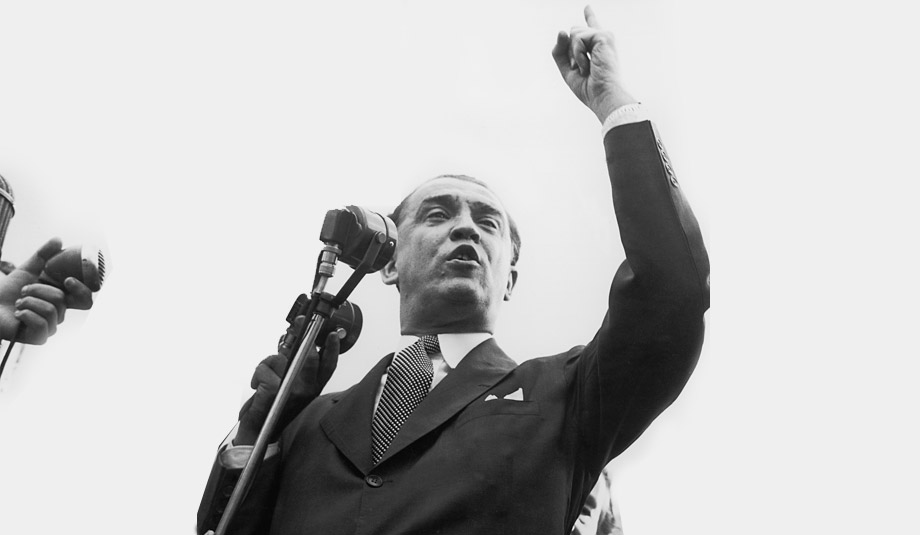
 Minas Gerais Gubernatorial Victory Speech, 1951.
Minas Gerais Gubernatorial Victory Speech, 1951.